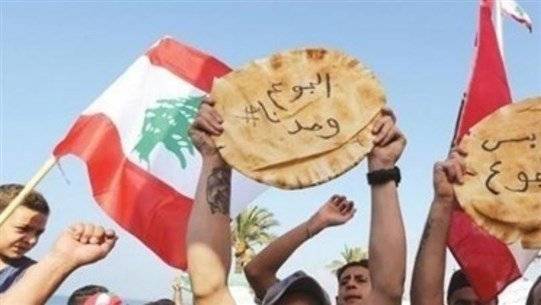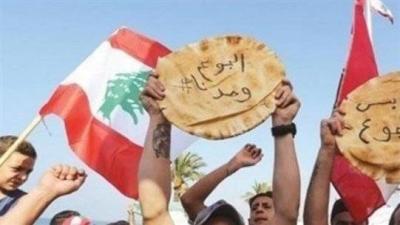The bread crisis overshadowed the parliamentary session and dominated the public scene with shameful queues stretching across distances in front of bakeries, amidst a prolonged debate about lifting subsidies. Compounding the problem was the decision by the Minister of Economy to stop supplying flour to bakeries pending an effective solution, meaning that the bread crisis will continue indefinitely. This crisis has the potential to ignite unrest, especially as it affects the basic sustenance of the poor. However, past experiences confirm that there will be no revolution against tyranny, even though a large segment of the population is preparing to commemorate Ashura—a revolution against corruption and tyranny. The Ashura banner raised in one of the streets of Nabatiyeh reads: "Ashura, a renewed revolution against injustice and corruption," which is a true reflection of the fragmented country's reality, drowning in a bread crisis with no hope for resolution.
Days away from Ashura, "the revolution of truth against falsehood," political parties and religious leaders in the Nabatiyeh region are busy raising black flags bearing slogans against corruption and tyranny, urging people to revolt against the corrupt. These slogans, however, are merely vague headlines these days, as the population, engulfed in the bread crisis, requires a revolution akin to Ashura—a reform strategy in a nation torn apart by conflicts, rivalries, and petty squabbles. Yet, the people are content with superficial solutions, running from one bakery to another, from one shop to another, from one black market trader to another, focused solely on obtaining a loaf of bread, indifferent to those manipulating their food security.
Food security was on the agenda in the discussions at the government headquarters in Nabatiyeh to mitigate the ongoing issues and stabilize the situation during Ashura. However, the bread crisis and the prevailing tension among the populace were absent from their discussions; security leaders deliberated on controlling the Ashura nights by banning motorcycles, freezing weapon licenses, and limiting the movement of displaced individuals, failing to consider that outside, citizens stand for hours in humiliation in search of a loaf of bread that is now threatened and entangled in a tri-dimensional political tug of war.
Crises often serve as coded messages sent by political forces to one another, and it is not surprising that a bread shortage could be one such message, accompanied by fears of chaos. Indeed, "the hungry will do anything to secure their daily sustenance; they may kill, strike, or scream." Sources indicate there is "concern that the bread queues could spark chaos in the country amid the boiling situation among the populace, who see their bread going to the displaced while they are deprived."
People have never learned from the Ashura revolution, the historical uprising led by Imam Hussein against tyrants and corrupt individuals who inflicted injustice and oppression on society. This important lesson remains little more than ink on paper in people's agendas, despite their prior knowledge that what they face necessitates rebellion, which they ultimately will not pursue.
Security leaders, including the governor of Nabatiyeh, are worried about disturbances disrupting Ashura. A religious scholar categorizes the situation as one of psychological and economic distress while affirming that conditions are fine, despite a security source stating that "the situation is not stable," attributing this to the turmoil and upheaval resulting from the bread crisis, which sources describe as the most dangerous because it directly affects the poor.
No one denies the popular political discontent; the loss of bread could be the initial spark of chaos if the government does not act to resolve the crisis. Even bakers themselves have begun to worry about their security, indicating that the bread crisis, now entering its fourth day without a solution, portends disaster. Most bakeries in Nabatiyeh are closed, bread is missing, and people search for it in vain. Various issues have been reported, while the region's representatives remain distant from the scene as if it does not concern them. Even the entire parliament has not acted for the sake of the poor's bread, while the queues remain the central event.




